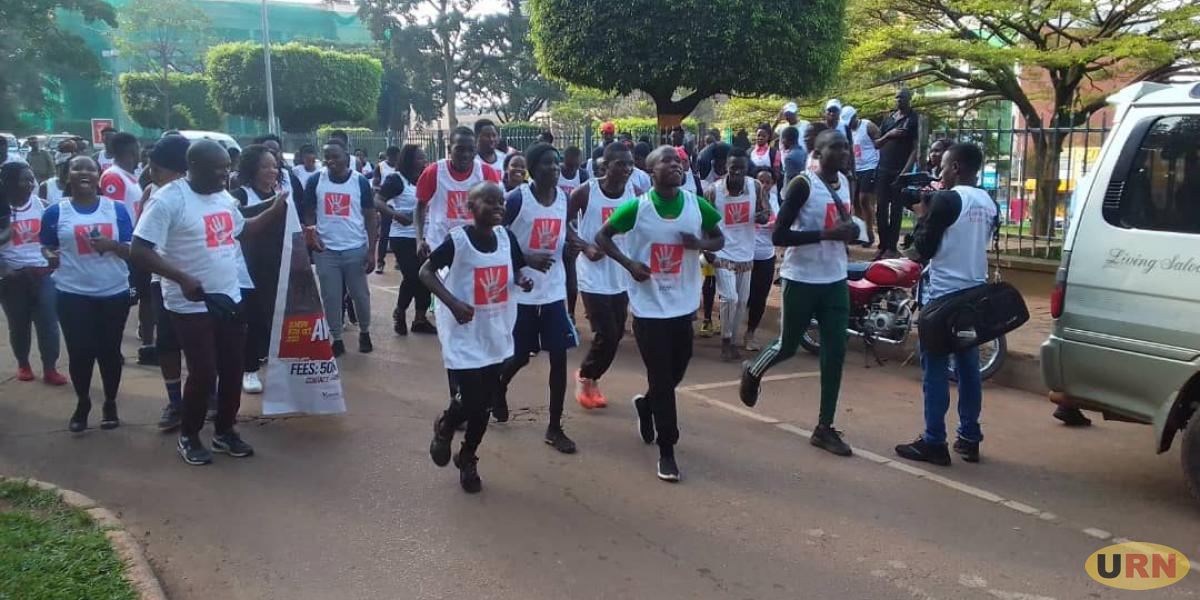Jovan Mulondo,13, spent 40 days in an induced coma at TMR International Hospital, fighting for his life after contracting Tetanus disease after an operation.
Mulondo’s mother, Victoria Nabiteeko from Kiteezi-Bamba village narrates that her son stepped in hot ash when he was only ten and half years old, which burnt him and they had to take him to the hospital for corrective surgery on his foot. But eventually, the surgery wound picked the tetanus bacteria.
Nabiteeko narrated that her son started complaining that his jaw was locked and she took him to a nearby health center but unfortunately the health worker couldn’t make the diagnosis.
The mother further narrates that the following day Jovan’s health got worse and he lost mobility but his parents did not know what the real problem could be. They took him for a full check up by pediatrician at Sure House on Bombo road and the doctor’s diagnosis confirmed tetanus. He was referred to Mulago hospital.
“None of us knew the gravity of tetanus at that point, I talked to Dr. Sabrina Kitaka who directed us to Nsambya hospital to see a pediatrician, but most health workers there have never experienced tetanus. Meantime, Jovan’s condition just deteriorated,” she states.
Dr Kitaka explained that Mulago at the time was then handling mild cases of tetanus, having no functional ICU for it for, hence the reference to Nsambya, where the capacity existed.
On 29 December 2019 one of the Nsambya doctors suggested that the boy be taken to TMR International Hospital for better management and he was put in an induced coma for 40 days.
“Had I known that when children get 10 years their Tetanus vaccination gets expired I would have given my son a tetanus shot then,” Nabiteeko regrets.
The government has since advised individuals to seek booster doses, reasoning that the vaccines given in infancy do not offer permanent immunity against the disease whose mortality rate is 100 per cent without treatment.
Dr Allan Muruta, the Commissioner of Public Health Emergencies at the Ministry of Health says many Ugandans are unaware of the correct schedule for tetanus vaccination and wrongly believe that the jab is given once in a lifetime.
According to the routine vaccination schedule under the Uganda National Expanded Programme on Immunization (UNEPI), a free tetanus vaccine is given in infancy at six weeks, 10 weeks and 14 weeks and to females aged 15-40 years to offer protection during childbirth. But Muruta says this should not be all especially when the death rate is too high.
He says all the people who contract tetanus end up in the intensive care unit and a lot of people have not witnessed on the ward how disastrous the disease can be.
Costs of treating tetanus:
The family spent UGX 165 million shillings to bring her son’s life back and that is not counting other expenses like feeding and other materials used in the hospital.
Michael Baganizi the Deputy Program Manager of Uganda National Expanded Program for Immunization -UNEPI while speaking to journalists at the Tetanus awareness run on Sunday that was flagged off from the city square to Mulago playgrounds, said that the Ministry of Health is to launch a massive tetanus vaccination drive for all age groups in Uganda to protect people from contracting the tetanus bacteria.
He adds that because of the ongoing vaccination against COVID-19 and now Ebola, they could not roll the program out soon until next year.
Pediatrician Sabrina Kitaka says that the ministry of health has put a lot of emphasis on neonatal tetanus prevention by vaccinating pregnant women and girls leaving out men who are also vulnerable to the Clostridium tetani bacteria and many people neglect booster shtots.
She adds that at the moment Mulago hospital has got two boys battling tetanus, underlining the need to vaccinate the boys and men against the deadly disease.
Worrying stats:
UNEPI figures estimate that between 3000 and 5000 people get infected with tetanus each year in Uganda and according to Dr Hellen Aanyu, the Acting Deputy Director of Mulago National Referral Hospital, the majority of these die partly because of how complicated the disease is to treat. Even with treatment, she says 50 per cent of the sufferers will still die.
The majority of the patients they get are children of about seven years and she explains that by that age, the vaccine given in infancy will have waned. Now, experts are recommending that children get a booster dose at around six years of age and then embark on a ten-year schedule of boosters to guarantee lifelong protection.
Kenneth Mwehonge, the Executive Director of Coalition for Health Promotion and Social Development (HEPs Uganda), an NGO that is spearheading an awareness campaign encouraging people to get boosters, the challenge with Uganda is not just the vaccine as it can be accessed even in the private health facilities. For him, people are not even aware of the symptoms that some first suspect witchcraft when they start developing signs such as painful muscle spasms and immovable muscles.
He cites an example of a recent case where two children aged thirteen and fifteen succumbed at Kibuli hospital. He says these had been cut by broken glass as they played but took it lightly until they suddenly ended up in ICU and eventually died.
Tetanus is a preventable infectious disease associated with high mortality rates. Increased vaccination coverage in Uganda has resulted in substantial declines in the number of individuals diagnosed with tetanus.
However, there is still a large number of tetanus admissions and deaths over a decade at a national referral hospital.
Management of tetanus in adults often requires treatment in the intensive care unit (ICU), which is often not available or very costly, resulting in preventable deaths.
Sunday’s awareness run was under the theme Stop Tetanus. Participants contributed 50,000 shillings each and all the proceeds are to support the tetanus-impaired survivors while several people where given tetanus jabs.



